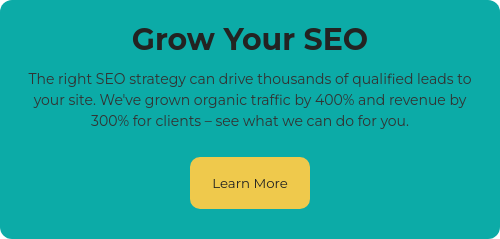In May 2020, Google announced that it will begin ranking search results based on “page experience” starting in 2021.
Page experience will be calculated based on the performance of your page in a handful of metrics that Google refers to as page experience signals. You might already be aware of some of these signals and have incorporated them into your SEO strategy, but there are some new concepts as well.
To improve page experience, analytics specialists need to prioritize the following factors:
-
Core Web Vitals
-
Mobile-Friendliness
-
Safe-Browsing
-
HTTPS
-
No Intrusive Interstitials
What Are Core Web Vitals?
Professional SEO services and online marketing agencies are already well-equipped to handle everything involved in this page experience metric (mobile-friendliness, safe and secure pages, no obnoxious pop-up ads). However, Core Web Vitals present new challenges and metrics that analytics and SEO agencies must be mindful of.
These vitals measure page speed, responsiveness, and stability. To better understand them, let’s look at each individually:
1. Largest Contentful Paint (LCP)
Largest Contentful Paint measures how quickly your page loads after a user clicks on your link. A quality page should take about 2.5 seconds to load. Any longer and the user may become frustrated with waiting to access your page.
Users expect a page to load quickly. If it takes more than three seconds, 40% of users will leave the website to look for a better option. This is not a new metric or a new idea. The good news is that you’re likely already in good standing in this area if you’ve been working with an SEO agency. If you haven't been, check this metric out and put it at the top of your list to fix if your brand's performance is subpar.
2. First Input Delay (FID)
First Input Delay measures the interactivity and responsiveness of your page. It’s the time between when a user interacts with a page element (like clicking a button) and when the page responds and executes the action.
A good FID would be less than 100 milliseconds. That goal may seem intimidating, but an online marketing agency can work with you to improve user experience and page responsiveness. Like LCP, if your page takes too long to respond, users will give up and leave the site.
3. Cumulative Layout Shift (CLS)
Cumulative Layout Shift refers to the phenomenon where a page seems like it has fully loaded, the user starts to interact with page elements… and then something new loads, shifting the page content around. This can be incredibly frustrating for the user (especially while on their mobile device) and cause them to click buttons or links they didn’t intend to click.
To measure CLS, a layout shift score is used. It takes the impact fraction (the amount of space the element takes up before the shift and after the shift, combined) and the distance fraction (how much the element has moved). This score should be less than 0.1. The shift score isn’t the simplest concept to describe, so you can find a great graphic depiction from Google Developers.
CLS is a new metric that Google is using to not only decrease user frustration but also to protect users. For the most part, the content shift is just irritating. Readers may lose their place in an article or miss the button they intended to click. However, some malicious sites will be tricky and try to get users to click on a desired button or link by shifting the content a certain way at the last moment. This will crack down on that malicious intent.
How the Page Experience Metric Affects Your Brand
For the most part, professional SEO service providers and online marketing agencies will already be working on page experience metrics.
Google isn’t rewriting the playbook here, though. They’re formally stating what we mostly already know with just a few new points. Metrics that were previously graded and weighed independently are now combined into one larger metric that will have more influence.
While the page experience metric will be important to the SERP ranking of your page, it won’t be the end-all, be-all. It also won’t completely override good content or other important SEO markers.
If your website has subpar page experiences but stellar content, your brand can still rank well. If you provide a great page experience but you have bland content, the user may move on and Google may take note of that as well. To really succeed, you need to balance all these factors to create a website that is just as useful as it is informative.
Prepare Now for Google Changes in 2021
While Google made this announcement in May 2020, it might give another notice a few months in advance of when the changes will be implemented in 2021. These early announcements are meant to give you and your brand plenty of time to adapt.
Analytics specialists will not only prepare you for coming changes, but they’ll also make it their responsibility to stay updated on changes in Google’s algorithm and ranking factors. They can ensure that your page is updated promptly.
Not sure if your website’s page experience will be optimized in time for this change? With our help, you’ll be better able to keep up with your competition and bring new visitors to your site with a great experience.






